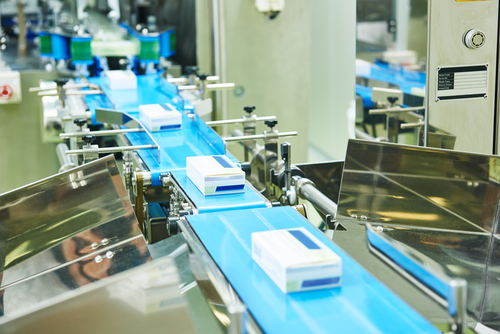Lessons From These Manufacturing Success Stories
The manufacturing industry has experienced tremendous growth over the last few decades, with more companies adopting lean methodology and successfully competing in a global marketplace, according to the National Association of Manufacturers. Productivity also hasn’t shown any signs of slowing down.
Overall, the hourly output for all workers in the manufacturing sector increased over 2.5 times since 1987. That spike in growth and productivity has led to some of the era’s greatest manufacturing success stories.
Have a look at how to value a manufacturing business to bring the highest price for your hard-working business investment.
Here’s a look at lessons from these manufacturing success stories and takeaways you use to add to your success.
Respond to Societal Trends
“Are you allergic to Latex?” is a question just about every medical professional asks patients when treating cuts, abrasions, or performing surgery. In the 1980s, Neil Tillotson and Luc DeBecker invented a replacement that effectively alleviated worries of allergic reactions.
The inventors realized there was a market need for safe and efficient gloves without the adverse side effects. As the AIDS epidemic gained national headlines, nitrile gloves were primed for mass manufacturing and distribution. The result was a safer way to help critically ill patients without infecting their caregivers and medical team.
Believe in Your Product
Spanx disrupted the undergarment industry when it created a category all its own. After Sara Blakely cut off the feet of a pair of pantyhose to create a slimming look, she realized she was onto something. Blakely took her life savings of $5,000 and spent two years researching hosiery patents and visiting craft stores to source fabrics for her secret invention.
But when she started calling manufacturers to produce her line, they all said no. After visiting a manufacturer in person, the manager said no before changing his mind and calling her. His daughters insisted it would be a monumental business venture — and they were right. Today, Spanx is a billion-dollar company.
Master the Art of Efficient Passion
Italian car manufacturer Maserati is no stranger to its market’s passion for sophisticated sports cars. So, the manufacturer decided to release a business sedan that embodied the passion of a sports car with the practical day-to-day need of a business car.
To release its business sedan in time for its 100th birthday, Maserati relied on manufacturing digitalization to quickly bring its ideas to the market. Specifically, Maserati relied on the SIMATIC IT MES software to take the manufacturing process from planning states to monitoring the production. The end result was an efficient, fast and reliable process that produced the elegant cars its market desired.
Stay Agile and Lean
Family-owned and operated Vitamix enjoys a problem most manufacturers would love to have — demand for their products has soared more than 50 percent year-over-year for five years running. According to the National Institute of Standards and Technology, Vitamix was experiencing long customer lead times and couldn’t scale quickly enough to take advantage of an eager market.
But after tapping the Partnership for Regional Innovation Services to Manufacturers, the company instituted a lean steering committee and trained leaders in the company. Thanks to careful preparation, readiness, and a desire to grow agilely, Vitamix was able to quickly rent a 175,000 square foot warehouse to accommodate its urgent need for a bigger space.
Time to sell your manufacturing business?
Are you thinking about selling a manufacturing business but not sure where to start? Would you like to know the value of your manufacturing business? If you would like more information please visit my website Business valuation.
For more immediate help you are welcome to send an email to Andrew Rogerson or give me a call on 916 570-2674.
Further reading: How to plan an exit and sell your manufacturing business?

